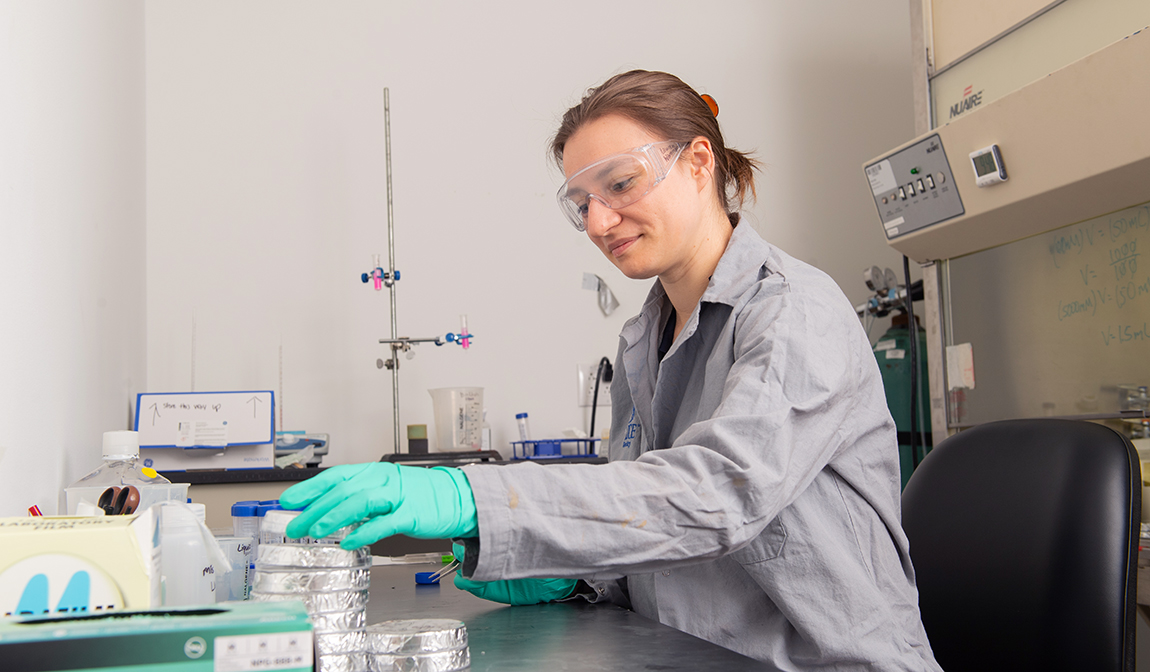The Chemistry of Medicine
Instead of becoming a medical doctor herself, Lauren Warning ’16 chose to pursue a career in research that could help medical doctors treat patients with cancer.By: Steve Neumann Monday, April 29, 2019 09:12 AM
 Photos by Tommy LaVergne
Photos by Tommy LaVergneUp until the moment she walked into Chemistry Professor Bruce Anderson's lab, Lauren Warning ’16 thought she would become a medical doctor. She had always been interested in science growing up, especially biology, so a medical degree seemed like a logical goal.
But just as chemistry is the science that deals with the properties of substances and the transformations they undergo, Warning’s experience with Anderson’s chemistry research began its own transformation on her, a process that would ultimately lead to a newfound passion and a change in her career plans.
Once Warning got a feel for what chemistry research was like, she found that she enjoyed performing experiments and reading the scientific literature related to her work. She also appreciated the fact that Anderson encouraged and supported her enthusiasm for learning more about chemistry.
“I was that student who would ask hundreds of questions about stuff that wasn't necessarily covered in the general course,” Warning says, “and he was great about helping me find answers.”
The final turning point for Warning came when she was filling out the American Medical College Application Service application for medical schools the summer before her senior year.
“Most of the programs don’t allow you to choose a primary field of chemistry,” Warning says. “That’s when I realized that my interest in the M.D. alone was not as strong as my interest in chemical research.”
As a result of that epiphany, Warning is pursuing her doctorate in chemistry at Rice University. “My research is focused on understanding how biomolecules (e.g. proteins) interact with medically relevant nanoparticles,” a research topic that was inspired by her trip to the American Chemical Society’s national conference during her junior year at Muhlenberg.
“I saw a talk about the role of gold nanoparticles in cancer treatment,” Warning says, “and I realized that I could still perform something with medical relevance without following a strictly M.D. career path.”
